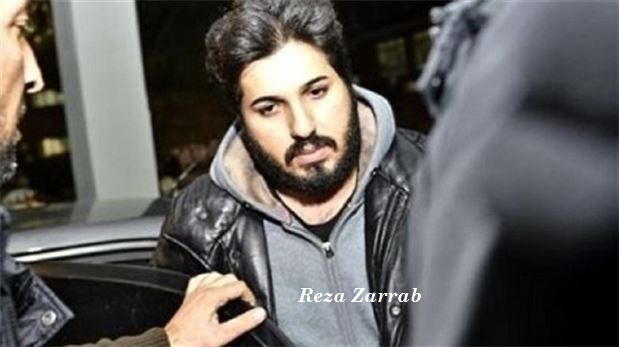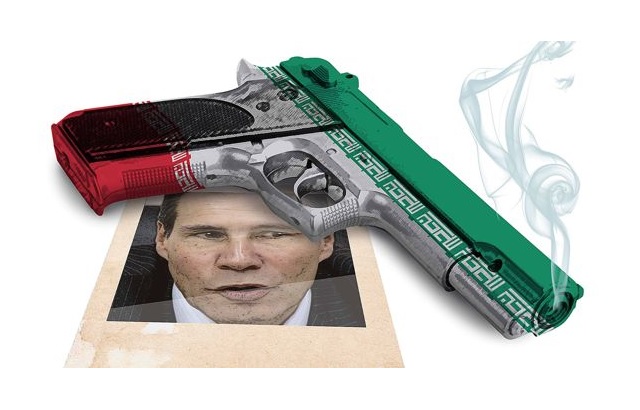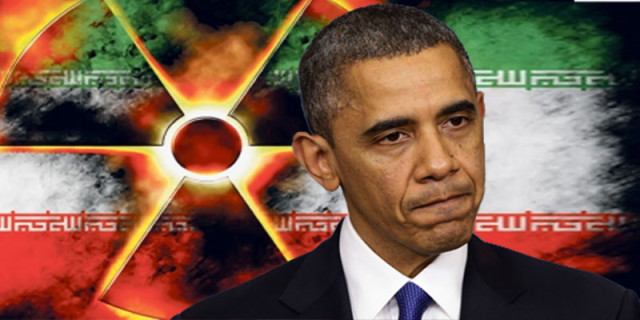Florida: U.S. Arrests Iranian Turk in $110 Billion Illegal Gold for Gas Deal
Patrick Goodenough’s CNS article chronicles this latest expose of corruption by Turkey’s Islamist Recep Tayyip Erdogan in a $100 billion dollar gold for gas scheme, discovered in 2013, evading UN and U.S. sanctions against dealing with a Nuclear Iran Iran-Related Arrest in Florida Could Have Political Implications for Turkey’s Islamist Ruling Party. Goodenough gives credit to the investigation team at the Washington, DC based Foundation for Defense of Democracy research uncovering this duplicity, while the Administration was actively pursuing negotiations over an Iran nuclear pact. Goodenough writes:
The arrest in Florida of a prominent Iranian-Turkish businessman accused of conspiring to conduct hundreds of millions of dollars in financial transactions to help Iran evade U.S. sanctions may have major political implications in Turkey, where the same man was linked to a corruption scandal reaching into the upper ranks of the ruling party.
A senior opposition leader expressed the hope that the arrest of Reza Zarrab, an Iranian-born Turkish businessman, may lift the lid on a scandal which many critics suspect was covered up by President Recep Tayyip Erdogan’s Islamist Justice and Development Party (AKP).
The Hurriyet daily quoted Republican People’s Party (CHP) chairman Kemal Kilicdaroglu as saying in parliament Tuesday that as a result of Zarrab’s arrest, “I am sure many will not get a wink of sleep tonight; they won’t be able to sleep in comfort in their beds.”
“Reza Zarrab will speak there, you will see,” he said, adding that “dirty relations will be exposed” and the facts will emerge about four AKP cabinet ministers who were the subject of massive fraud and corruption allegations three years ago.
The Department of Justice announced Monday the unsealing of an indictment in the in the Southern District of New York against dual Turkish-Iranian citizen Zarrab, 33, who was arrested in Florida on Saturday; and two Iranian nationals who remain at large, Camelia Jamshidy, 29, and Hossein Najafzadeh, 65.
John Carlin, assistant attorney-general for national security, said that according to the charges the three had “circumvented U.S. sanctions by conducting millions of dollars-worth of transactions on behalf of the Iranian government and Iranian businesses.”
“These alleged violations, as well as the subsequent efforts taken to cover up these illicit actions, undermined U.S. laws designed to protect national security interests,” he said.
According to the indictment, between 2010 and 2015 the three allegedly conspired to thwart U.S. and international economic sanctions against Iran by concealing financial transactions that were on behalf of the Iranian government or government-controlled banks and other entities.
They used a network of companies located in Iran, Turkey and elsewhere to conceal from U.S. banks, the Treasury Department’s Office of Foreign Assets Control (OFAC) and others the fact that the transactions were benefiting and on behalf of Iranian entities.
The indictment quotes from a Dec. 2011 letter from Zarrab, addressed to the general manager of the Central Bank of Iran saying in part, “[i]t is not secret that the trend is moving towards intensifying and increasing the sanctions, and since the wise leader of the Islamic Revolution of Iran has announced this to be the year of the Economic Jihad, the Zarrab family, which has had a half a century of experience in foreign exchange, … considers it to be our national and moral duty to declare our willingness to participate in any kind of cooperation in order to implement monetary and foreign exchange anti-sanction policies …”
[…]
Earlier research into the “gas for gold” scheme by the Foundation for Defense of Democracies and Roubini Global Economics found that Iran and Turkey’s Halkbank were exploiting loopholes in U.S. sanctions law.
Here’s what we wrote about Zarrab and the emergence of the illegal gold trading back in a NER/Iconoclast post in January 2014.
Meanwhile the main secular opposition, the People’s Republican Party (CHP) lead by Kemal Kilicdaroglu in Turkey’s parliament has kept up a stream of constant criticism of Erdogan endeavoring to place him at the center of the corruption probe. Yesterday, he questioned the Turkish Intelligence (MIT) report on the illegal gold trading submitted in April 2013 involving Azeri Iranian businessman Reza Zarrab. Today’s Zaman reported Kilicdaroglu saying:
In a weekly meeting of his party’s parliamentary group on Tuesday, Kilicdaroglu addressed reports published Monday in a number of media outlets claiming that the National Intelligence Organization (MIT) submitted a report to Erdogan on April 18, 2013 detailing the shady relations – involving bribery and influence-peddling – of certain ministers with Iranian businessman Reza Zarrab, who is under arrest. “I would like to ask the prime minister about what he did upon receiving this report. Did you call these ministers and talk to them? Did you talk to your children? He didn’t. He is the one who gave these orders,” Kilicdaroglu said.
These latest developments on the Zarrab illegal gold trading for Iranian gas call into question the Administration’s policy of supporting Muslim Brotherhood and ISIS supporters like Erdogan. Erdogan’s Turkey, while criticized by the US and NATO, hasn’t been dismissed as a member of the mutual defense pact, given his war against the Kurds inside the country, across the border in north Syria and even in the Iraqi Kurdish region. All while surreptitiously supporting ISIS emboldening his family’s shipping and oil smuggling profiteering. Question why Israel wants to renew relations with Turkey after the May 2010 Mavi Mamara free Gaza incident paying $20 million in alleged wrongful death compensation for the nine Turkish nationals killed in the scuffle with Israel Naval commandos. Note this recent anti-Semitic comment by the AKP woman official following the Istanbul blast that killed three Israelis, two of whom were American citizens, injuring ten others, from a Jerusalem Post report:
An official from Turkish President Recep Tayyip Erdogan’s ruling AKP Party tweeted that she “wished the Israelis” who were said to be wounded in Saturday’s Istanbul suicide blast were dead. Irem Aktas made the provocative tweet immediately after the attack. Turkish sources said that Aktas is the head of the party’s media relations and women’s outreach department.
Credit the team at the Foundation for Defense of Democracies for sleuthing the gold for gas scheme from open sources that we wrote about back in 2014. Cliff May, President of FDD wrote this in an email:
This week, the Department of Justice announced the arrest of Turkish-Iranian national Reza Zarrab, upon his arrival in Miami. Among the charges: defrauding the US government.
Zarrab briefly made news in late 2013, when he was arrested on charges of corruption in Turkey, where he then resided. He was presumed to have coordinated Iran’s largest and most sophisticated sanctions evasion scheme on behalf of Babak Zanjani, an Iranian formerly under U.S. and EU sanctions who was recently sentenced to death in Iran for embezzlement.
The Turkish government quashed the police investigation against Zarrab — presumably because of the involvement of senior government officials in the corruption scheme he devised to grease the wheels of his operation.
The U.S. administration, keen not to undermine the chances of a nuclear deal with Iran, declined to pursue the dozens of companies and individuals involved in a giant financial scam that enabled Iran to launder more than $100 billion worth of oil and gas revenue, transform it into gold and ship it back to Iran through a trail of companies that went from Dubai to Turkey, from Istanbul to Tajikistan, from Tashkent to Malaysia.
For years, FDD has tirelessly and doggedly documented these networks. FDD Senior Fellow Emanuele Ottolenghi identified Mehdi Shams, one of Zanjani’s key associates, and mapped out his network of front companies in Europe and the Middle East as early as September 2013.
Despite reluctance by U.S. officials to take any action against Shams, Emanuele kept pushing the story as did others at FDD. When the Zarrab-Zanjani connection was exposed in December 2013, the Daily Beast extensively quoted Emanuele and exposed Shams’ links to Zanjani.
FDD’s Executive Director Mark Dubowitz and VP for Research Jonathan Schanzer detailed in hard hitting pieces the nature of the sanctions scheme. Their work helped inspire Congress to make important legislative changes designed to close a critical loophole in the sanctions architecture.
With the corruption scandal case in full swing in Turkey, Emanuele and FDD Fellow Saeed Ghasseminejad exposed another Zanjani associate in early January 2014 in a piece published in Turkey’s daily, Hurriyet. The man they named, Hamid Sallah Heravi, was sentenced to death along with Shams and Zanjani two weeks ago.
Then, in March 2014, with Turkey’s Erdogan determined to quash the investigation, the Turkish prosecutor’s indictment was leaked. FDD Turkish affairs analyst Merve Tahiroglu provided critical analysis based on a 330-page document that FDD promptly provided to Treasury.
Our team continued to follow the story and its many angles and to provide critical open-source intelligence to government authorities.
Our efforts have now paid off: Revelations from the Zanjani trial vindicate our insistence on going after his networks and his associates. They confirm our fellows’ open-source research on Iranian illicit finance networks. And the arrest of Zarrab in the United States is now sure to further expose the high levels of collusion and corruption within the Erdogan government.
Meanwhile, President Obama fresh from his fractious trip to Cuba with autocratic aging Communist dictator Raul Castro disputing the country’s notorious human rights record and family control over the economy has another problem upon arrival in Buenos Aires when he meet with President Mauricio Macri, whose election ended the corrupt 12 year reign of the Peronista Justicia party of former President Cristina Kirchner and her late husband. It concerns the release of US intelligence on Iranian involvement in the 1994 AMIA Jewish Center in Buenos Aires that figured in the murky circumstances behind the murder of the late Argentinean special prosecutor Alberto Nisman in January 2015. Stay tuned for developments in these stories dogging the President’s valedictory lap in Cuba and Latin America.
EDITORS NOTE: This column originally appeared in the New English Review.



